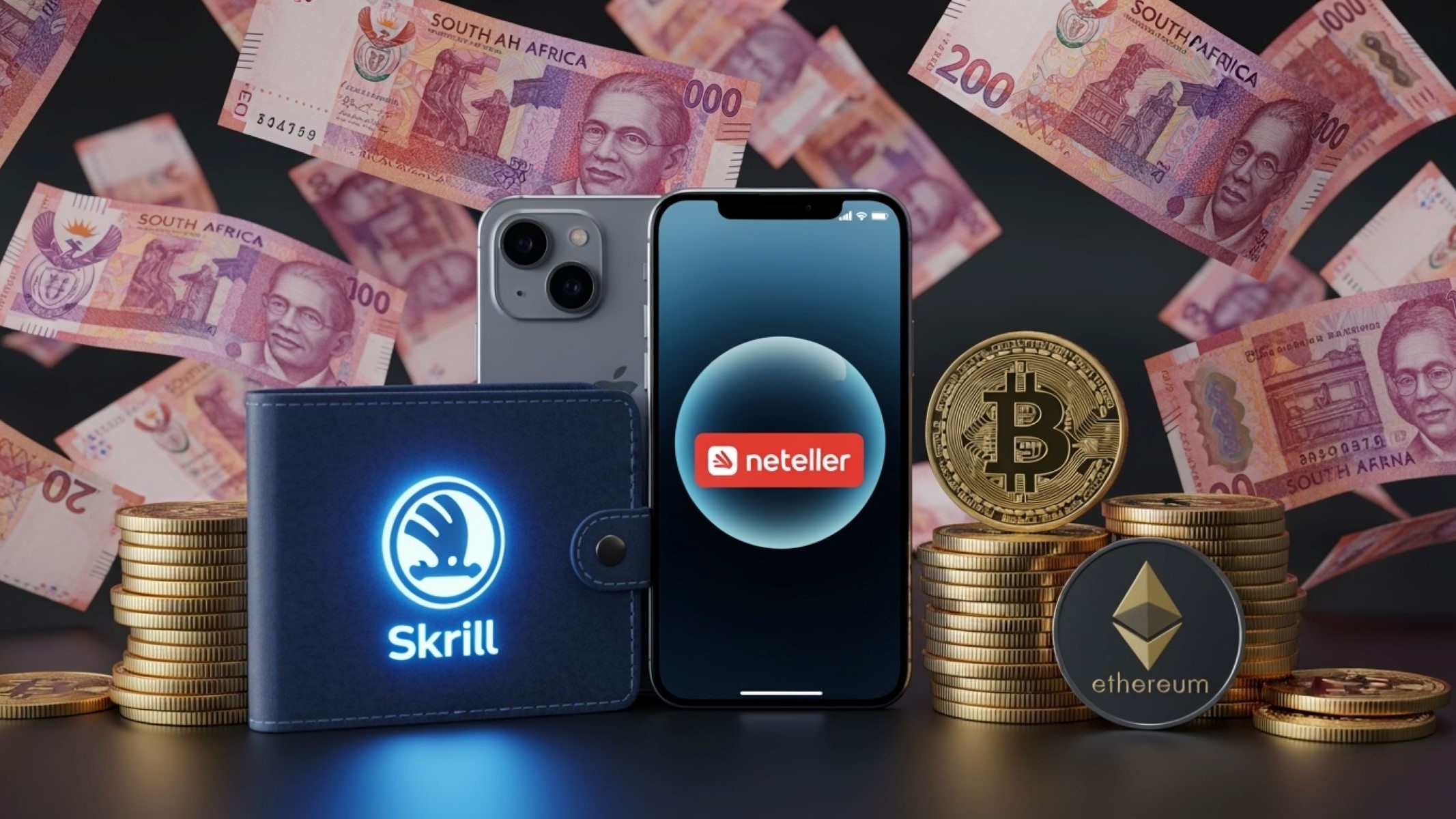Let’s face it—no one likes paperwork. And when it comes to online casinos or betting platforms, one of the most frustrating things for players in South Africa is hitting a wall when they try to withdraw their winnings—only to be asked for piles of documents. If you’re wondering whether it’s possible to withdraw money without going through identity or document verification, you’re not alone. This article breaks down everything you need to know about how to withdraw without document verification in South Africa, and how to do it safely, legally, and quickly.
Quick Disclaimer Before We Dive In
Withdrawing funds without going through document verification might sound like the dream, especially if you’re tired of dealing with paperwork, scanning IDs, or waiting days for someone to approve your identity. And yes, in certain cases, it is technically possible. Some platforms — particularly those that accept cryptocurrency or operate with limited regulations — allow small withdrawals or even full transactions without asking for any form of ID. This is especially common with anonymous wallets or low-limit accounts where the perceived risk is lower for the operator.
However, just because it’s possible doesn’t mean it’s always a smart move. Skipping verification can expose you to several risks that many players don’t consider until it’s too late. For starters, the absence of KYC (Know Your Customer) procedures can open the door to scams and fraudulent platforms that have no intention of paying out your winnings. You may think you’re bypassing a small annoyance, but you could end up losing your entire balance if the platform turns out to be shady or unregulated. There’s no legal recourse when you’re using a site that operates in the shadows.
Another issue is account security. Without proper verification steps in place, anyone who gains access to your login credentials could potentially access your account and withdraw your funds without resistance. Verification isn’t just about proving who you are to the site — it also acts as a protective layer for your own assets. Plus, many platforms keep the right to demand verification later, even after letting you deposit and play without it. So you might enjoy a quick win only to face a blocked withdrawal later down the line.
Lastly, regulatory concerns in South Africa are also worth keeping in mind. Gambling laws differ from province to province, and while some international platforms operate in legal grey zones, South African regulators are increasingly cracking down on illegal operators. Using a no-KYC casino or platform could unintentionally place you on the wrong side of the law. So, while skipping document checks sounds like a shortcut, it’s essential to stay informed, use trusted platforms, and weigh the convenience against the possible consequences.
Understanding Document Verification First
Before you get frustrated by online casinos or betting platforms asking for identification, it’s important to understand why these checks exist in the first place. They’re not trying to make your life difficult on purpose — document verification is a legal and security measure that helps both the platform and the player. Below is a detailed breakdown of the reasons behind this process and what kind of documents are typically required during withdrawals.
- Preventing Money Laundering:
One of the core reasons for document verification is to combat money laundering. Online gambling platforms can be misused by criminal entities to “clean” illegally obtained money. By verifying the identity of each user, casinos help law enforcement track the flow of money and ensure their platform isn’t being used for illicit financial activity. - Protecting Against Identity Theft:
Verification helps prevent one of the most damaging cybercrimes — identity theft. Without ID checks, someone could create an account using stolen information and attempt to withdraw money under a false name. By requiring proof of identity and ownership of payment methods, platforms reduce the risk of fraud and account takeovers. - Ensuring Players Are Legally Allowed to Gamble:
In South Africa and many other countries, there are strict legal age limits for gambling. Verification documents help ensure that the person trying to play is at least 18 years old. This is crucial for regulatory compliance and also to prevent underage gambling. - Complying with International KYC/AML Regulations:
Online casinos, especially those operating internationally, are subject to regulations such as KYC (Know Your Customer) and AML (Anti-Money Laundering). These frameworks require businesses to confirm the identity of their clients and monitor financial transactions. Failing to comply can lead to penalties or loss of licenses, so platforms take verification seriously. - Verifying Address for Jurisdictional Compliance:
Online platforms may need to verify your location to ensure that gambling is legal in your region. Some provinces in South Africa have stricter regulations than others. A utility bill or bank statement showing your address helps platforms determine if they are legally allowed to offer services to you. - Establishing Ownership of the Payment Method:
To prevent disputes or financial fraud, platforms often need to verify that the payment method (credit card, bank account, or e-wallet) being used for withdrawals actually belongs to the player. Screenshots or bank statements confirming this connection protect both parties.
When Can You Withdraw Without Document Verification?
| Scenario | How It Works | When It Applies | Pros | Cons / Risks |
| Using Crypto Casinos or Wallets | You deposit and withdraw using cryptocurrencies like BTC, ETH, LTC, or USDT. | Most commonly applies to crypto-exclusive platforms | – Fast, anonymous withdrawals – No third-party banks involved |
– Highly volatile – Not regulated in South Africa – No legal recourse |
| Choosing Low-Withdrawal Casinos | Keep your withdrawal amount under a “KYC threshold” (e.g., below R500–R1,000). | Works on platforms with risk-based verification | – Fast processing – No need for ID on small amounts |
– Limited withdrawal amounts – Frequent use may trigger KYC |
| Signing Up on No-KYC Casinos | You join casinos that publicly advertise “no KYC needed” policies. | Crypto-focused, offshore, or minimalist operators | – No documents required – Full privacy – Instant payments possible |
– Often unregulated – Trust issues – Potential withdrawal limits |
What Are No-KYC Casinos in South Africa?
No-KYC casinos are online gambling platforms that allow users to deposit, play, and even withdraw funds without going through the traditional verification process known as KYC (Know Your Customer). Normally, KYC is a legal requirement for most financial services, including online casinos, and it involves submitting documents such as an ID, proof of address, and even video verification in some cases. These steps are designed to prevent fraud, money laundering, and underage gambling. However, no-KYC casinos intentionally bypass this entire process, offering a more anonymous and private gambling experience—something that’s becoming increasingly attractive to South African players.
In a no-KYC environment, you’re not asked to upload documents, take selfies with your ID, or answer video calls to prove who you are. This greatly reduces onboarding time and gives you faster access to your funds, especially if you’re using cryptocurrencies like Bitcoin or Ethereum. Many of these casinos rely on blockchain technology to facilitate transactions, which naturally sidesteps the need for traditional banking compliance. For players who value privacy or simply hate dealing with bureaucracy, these platforms are incredibly appealing. They offer the convenience of instant withdrawals, minimal friction, and a user-friendly process that doesn’t rely on slow, manual approval.
That said, the lack of verification isn’t without its trade-offs. When you use a no-KYC casino, you’re placing a significant amount of trust in the platform itself. If something goes wrong—say, a payout is delayed, or your account gets restricted—you won’t have the usual legal or customer service channels to back you up. Since many of these casinos operate offshore and outside South Africa’s legal jurisdiction, recovering funds or lodging a complaint becomes nearly impossible. You’re essentially gambling not just with your money on the games, but also with the platform’s reliability.
Despite these risks, some no-KYC casinos have become popular in South Africa due to their fast payouts and strong reputations within the crypto-gambling community. Platforms like BC.Game, Stake, Winz.io, and FortuneJack are frequently mentioned among seasoned crypto users. All of them support only cryptocurrency transactions, offer near-instant withdrawals, and make it clear that they don’t require KYC—at least for smaller or routine transactions. These platforms serve a niche but growing segment of South African gamblers who prioritize anonymity and speed over regulation and security.
Risks of Withdrawing Without Verification
Let’s not sugarcoat it—withdrawing without document verification might seem like a shortcut, but it can come with serious consequences. While the appeal of skipping all the paperwork is strong, especially when you’re dealing with small wins or want fast access to your funds, there are multiple dangers involved that every South African player should be aware of. Below is a detailed list of the main risks you might face when avoiding KYC (Know Your Customer) procedures.
- Falling Victim to Scams:
Some unlicensed or shady gambling platforms advertise “no verification needed” simply to lure players in. Once you deposit and win, they may stall or refuse to process your withdrawal entirely. Since they don’t follow any legal obligations, they have no accountability, and you’ll likely never see that money again. - Frozen Accounts Without Warning:
Even if a platform initially lets you play and withdraw without ID, that doesn’t mean you’re in the clear forever. If you make a large withdrawal, show unusual behavior, or trigger internal fraud detection systems, your account can be locked. At that point, they might demand full KYC documents before reactivating your access—or worse, refuse to return your funds altogether. - Severely Limited Withdrawal Amounts:
Most no-KYC platforms, even those that are legitimate, enforce strict caps on how much you can withdraw without verifying your identity. You might be allowed to take out R500 or R1,000, but anything more than that gets flagged. This can be incredibly frustrating if you hit a big win but can’t access the full amount without handing over your documents. - Lack of Legal Protection or Recourse:
If something goes wrong—your account is locked, your withdrawal is refused, or the site disappears—there’s not much you can do if the platform isn’t licensed by a recognized gambling authority. Without legal regulation, you have no formal process for disputes, no regulatory body to appeal to, and no assurance of fairness or transparency. - Higher Risk of Fraud or Identity Theft:
Ironically, while no-KYC platforms avoid document collection, they often lack strong account security protocols. This can make you more vulnerable to fraud, phishing, or unauthorized access if someone obtains your credentials. Unlike regulated sites, there’s no guarantee your funds are safe behind two-factor authentication or encrypted systems. - Potential Tax and Regulatory Issues:
By avoiding verification, you might unknowingly step into legal grey areas regarding tax declarations or compliance with local gambling laws. If authorities start cracking down on illegal gambling or undeclared income, unverified activity on foreign platforms could land you in hot water.
Tips to Withdraw Without Getting Flagged
| Tip | What to Do | Why It Works | Best Practices | Risks If Ignored |
| Withdraw Small, Withdraw Often | Keep your cash-outs minimal and frequent, e.g., R500 every few days. | Large withdrawals often trigger automated KYC checks and manual reviews. | Break up larger amounts into smaller daily or weekly payouts. | Going for one big withdrawal can freeze your account or delay payment. |
| Use E-Wallets and Crypto | Opt for wallets like Skrill, Neteller, ecoPayz, or crypto like BTC/USDT. | These payment methods often require less scrutiny than bank accounts or cards. | Stick to one payment method to maintain consistency. | Bank-based withdrawals usually require full identity verification. |
| Avoid Bonuses That Require KYC | Don’t claim promotions unless you’re ready to complete verification later. | Bonus abuse is one of the biggest reasons platforms ask for ID. | Always read bonus terms before accepting them. | Winnings from bonus funds may be locked until you verify your identity. |
| Don’t Switch Devices or IPs Often | Play from the same device and internet connection to avoid suspicious activity. | Frequent changes in location or device raise security concerns on most platforms. | Disable VPNs or location spoofers when playing or withdrawing. | You may be flagged for “account sharing” or “location fraud.” |
| Be Consistent with Login & Payment Info | Ensure your email, username, and payment details match and remain the same. | Sudden changes in user data often lead to manual reviews and ID requests. | Register and stick with one wallet and one login identity. | Any inconsistency might trigger account review and documentation demand. |
How Some Players Successfully Avoid Verification
Let’s take a look at how some savvy players manage to withdraw funds without ever having to submit identity documents. Consider a typical example of a player named Siphiwe, who uses a crypto casino. He begins by signing up with just a username and an email address, avoiding any additional personal details. This minimal information reduces the chance of the platform flagging his account early on. Then, Siphiwe deposits a modest amount—around R500 worth of Litecoin—directly into the casino’s crypto wallet. Since this is a relatively small deposit, it doesn’t immediately raise any red flags or trigger mandatory verification requirements.
Once he’s funded his account, Siphiwe plays a few rounds of blackjack, keeping his gambling activity straightforward and low profile. Importantly, he avoids claiming any bonuses or promotions because these offers often come with strict terms requiring full KYC verification before withdrawals can be processed. By steering clear of bonuses, he sidesteps one of the most common triggers that prompt casinos to demand identity confirmation.
When it comes time to withdraw, Siphiwe requests R750 back to the same Litecoin wallet he used to deposit. Because his withdrawal is under the usual verification threshold, the platform processes the transaction smoothly. Another factor working in his favor is that he never used a VPN or changed devices during his session. This consistent behavior helps the casino’s fraud detection system see him as a low-risk player, making it less likely for his account to be flagged or frozen.
In summary, Siphiwe’s success in avoiding verification comes down to keeping things simple, consistent, and low risk. He provides minimal personal information, deposits and withdraws small amounts, avoids bonuses, and maintains a steady online presence without suspicious activity. While this approach doesn’t guarantee no verification requests in all cases, it’s a proven strategy that many players use to enjoy hassle-free withdrawals from crypto and some low-threshold casinos.




